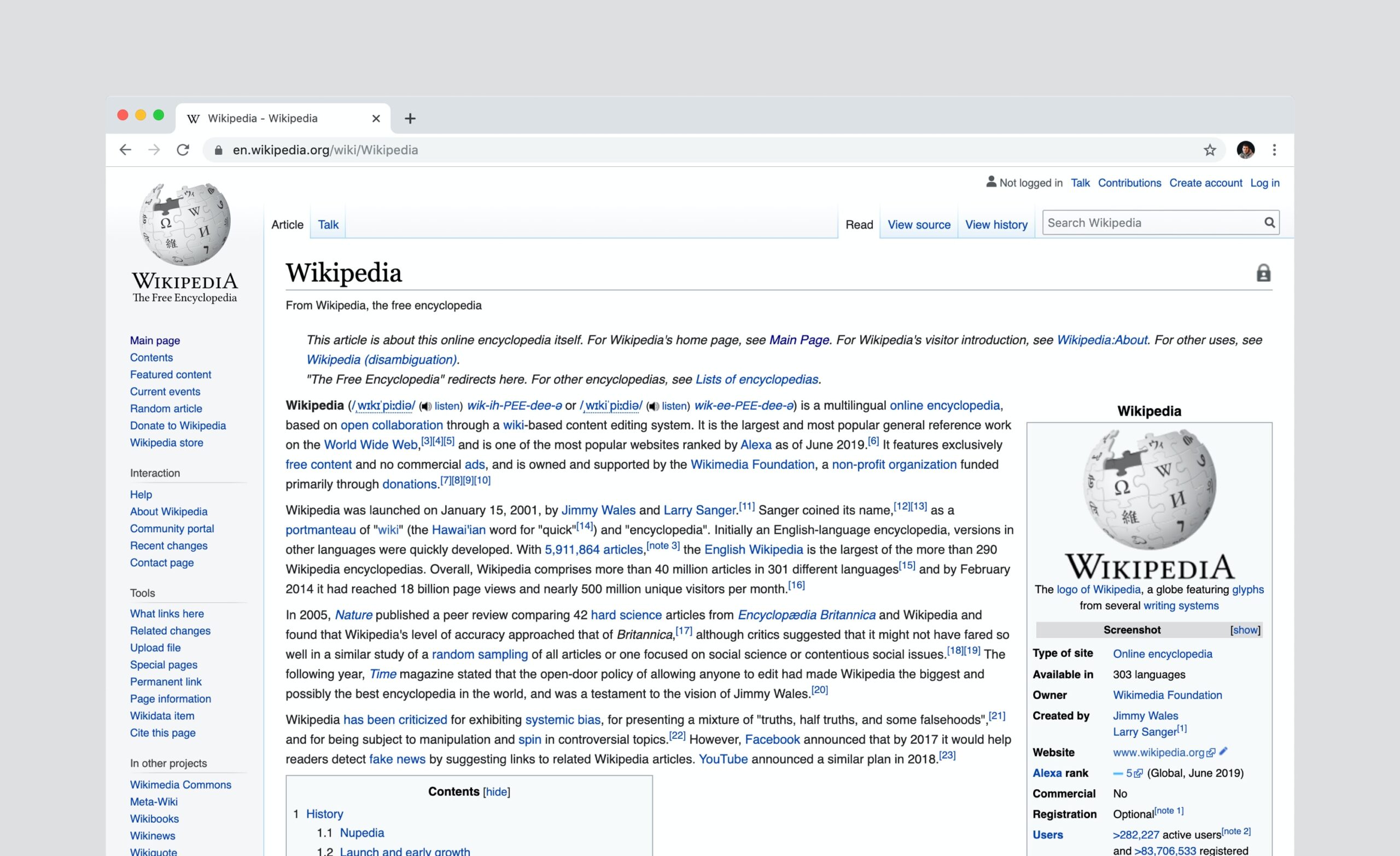The internet is a massive wealth of knowledge. You can use a search engine like Google to look up anything that you want to know and get millions of results in an instant (my latest search populated about 2,030,000,000 results in 0.55 seconds.) 🔎
Wikipedia defines a search engine as: a software system that is designed to carry out web searches. It searches the World Wide Web in a systematic way for particular information specified in a textual web search query.
-Wikipedia
Basically, a search engine scours the vastness of the WWW for websites containing the keywords that you have entered and then uses a ranking algorithm to return the most relevant and useful results. 🎯
The problem is that search engines only deliver the information that you searched for, and nothing else. You might be thinking, “Well, duh. That’s what it’s for.” And yes, you’re right— The very nature of the search engine algorithm is to limit the results to what is relevant to what you’re looking for. But what if you don’t know what you’re looking for? How do you explore new topics? 🤔 You can’t enter keywords for topics that you don’t know exist.

Enter: The Encyclopedia
(a.k.a. Wikipedia — probably the most popular encyclopedia ever.)
Wikipedia attempts to collect summaries of information from all branches of knowledge. At the time of writing this, there are 6,438,869 English articles available, and about 600 new ones are added every day. Each article contains references to other articles as well as outside sources, which makes them a great starting point for deep-diving into a topic. 🤿
How to Learn with Wikipedia
Most of us navigate to Wikipedia via Google, since it’s usually one of the first results that pop up. Instead, try going to the 🔗 Main Page— that’s where the real magic is. From the home page you can see featured articles, featured pictures, snippets of what’s in the news, an “On this Day in History” section, and a “Did You Know” section. If you have your location enabled you can also see articles that are relevant to your geographical location.
In the sidebar, you’ll see a link to the 🔗 Contents page which will bring up the main navigation system. From here you can explore articles by subject, by what’s most popular, or A-Z if you’re so inclined. You can also click “random article” if you have no idea what you feel like learning about. Of course, from this point you will inevitably go down the Wikipedia rabbit hole, clicking on links to other related topics that interest you.
Ahh, an information junkie’s happy place.
-Me
While you don’t need an account to use the site and have probably never considered making one, the option is available. Creating one allows you to save your search history and bookmark your favourite articles for future reference. You also get the bonus of avoiding those pesky pop-up windows asking for donations and you get the option to change the colour scheme. I highly recommend doing this. 👍
A Note on Accuracy
Keep in mind that Wikipedia is not a reliable source, and it doesn’t claim to be. The prefix “wiki” is used for crowd-sourced databases of information, where articles can be edited by anyone at any time. This makes the information susceptible to falsification and inaccuracy. To combat this there are volunteer editors (a.k.a. Wikipedians) that work to make sure that the articles are correct and up to date. However, even if the information presented is correct it may be delivered in a biased manner. According to a study by the Association for Computing Machinery 77% of all articles are written by 1% of its editors Wikipedians. Therefore a large portion of the wikis is inextricably embedded with the personal biases of this 1%. This is why it is important to verify the information with other more credible sources. As long as you watch out for these limitations you’re good to go!
Further Reading
Wikipedia has an 🔗 official Instagram account that shares links to interesting articles.
But, even better than the official Wikipedia Instagram page is one that I just discovered called 🔗 @DepthsofWikipedia. It’s run by 🔗 Annie Rauwerda and includes hilarious and bizarre screenshots from Wiki articles. It’s more of a meme page than anything, but I laughed out loud at a bunch of the images. Definitely worth a follow if you don’t hate funny things.
EDIT: I just realized it’s Wikipedia’s 21st Birthday today. 🎂What are the chances! Hope it’s not getting too drunk lol. 🤪

